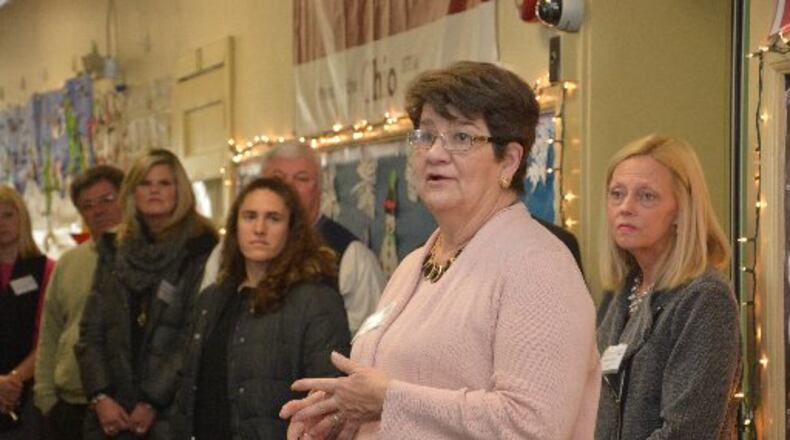“I’m drafting (the bill) right now, and I know it’s going to be a very heavy lift, but I think it’s very important,” said Lehner, R-Kettering. “We need to ban the practice of suspension and expulsion of young children.”
Speaking at a gathering about equity in education, Lehner said nearly all of those 36,000 young students expelled were children in poverty.
“We obviously do not know how to deal with behavioral problems,” Lehner said. “We can’t say these behaviors do not exist or are not disruptive in the classroom, but we must give our teachers and our schools the tools to deal with them in a way that allows those children to stay in school and learn.”
That has been the debate in the past – some teachers and families have argued that even young students need to be removed from school if they’re disrupting the learning process for the class. Others say more options are needed for those younger students, because taking them completely out of school reinforces a path to failure.
Racial Justice Now successfully pushed Dayton Public Schools toward reducing its suspension rate, spotlighting problems with state and national school discipline data. RJN’s reports argue that students are sent home too often for nonviolent offenses and “subjective offenses,” and that black students are disciplined more harshly than their white counterparts for similar behaviors.
Just last week, Dayton teachers union President David Romick listed the discipline issue as a crucial one for Dayton Public Schools. He said in order to effectively implement DPS’ push for lower suspension rates, teachers need better training on handling problem behaviors in the classroom.
Lehner said multiple times that it will be a challenge to get the early-age expulsion ban passed, and she called for support from leaders in education and the broader community.
** Other bills: Lehner said she also expects to see a bill introduced expanding preschool access for poor families.
“I want to get it firmly in the Ohio Revised Code that by a reasonable date not too far out, that we will provide high-quality early-childhood education for every child in need in the state of Ohio,” Lehner said. “We will probably start with 4-year-olds, and that’s probably as far as we’ll get this cycle, but I think that needs to go down to 3-year-olds, and eventually we need to wrap in home visiting and other programs.”
The city of Dayton is already going down this path, using funds from a new income tax increase to make high-quality preschool available on a sliding financial scale to all 4-year-olds in the city.
Lehner also said she wants to strengthen protections against lead poisoning, saying it leaves many kids unable to go to school or to do their best once there. Most lead poisoning in children comes from lead-based paint in older homes and apartments, according to the Mayo Clinic.
About the Author
